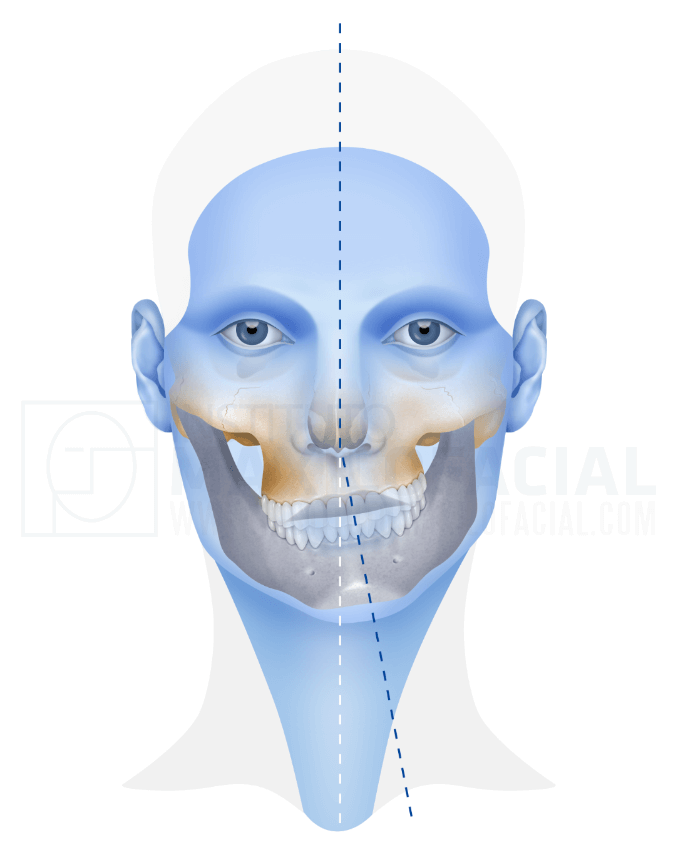Facial asymmetry occurs when one side of the face is not balanced with the other. While slight differences are normal, in some cases the imbalance can affect appearance, bite function, or even the patient’s self-esteem.
Facial asymmetry occurs when one side of the face is not balanced with the other. While slight differences are normal, in some cases the imbalance can affect appearance, bite function, or even the patient’s self-esteem.

The causes can be:
Genetic: family traits or congenital anomalies (cleft lip, cleft palate).
Growth-related: habits such as chewing on one side, crossbite, or constant pressure while sleeping.
Acquired: facial trauma, arthritis or TMJ disorders, tumors, or infections.
In some cases, sudden asymmetry may indicate a serious condition such as Bell’s palsy or a stroke, requiring immediate medical attention.
Treatment depends on the cause:
Skeletal asymmetries: orthognathic surgery (monomaxillary or bimaxillary), often combined with orthodontics.
Generalized asymmetries: orthognathic surgery along with aesthetic procedures (rhinoplasty, genioplasty, cheek augmentation, lipofilling).
Dental asymmetries: orthodontic treatment.

Correcting facial asymmetry improves not only the harmony of the face, but also chewing function, TMJ health, and the patient’s confidence.
At Instituto Maxilofacial in Barcelona, we are pioneers in orthognathic surgery and among the most experienced teams worldwide, performing over 200 surgeries per year, many of them to correct facial asymmetry. Our specialists carry out a comprehensive analysis of the jaw, maxilla, teeth, nose, and soft tissues to restore the natural balance of each face.